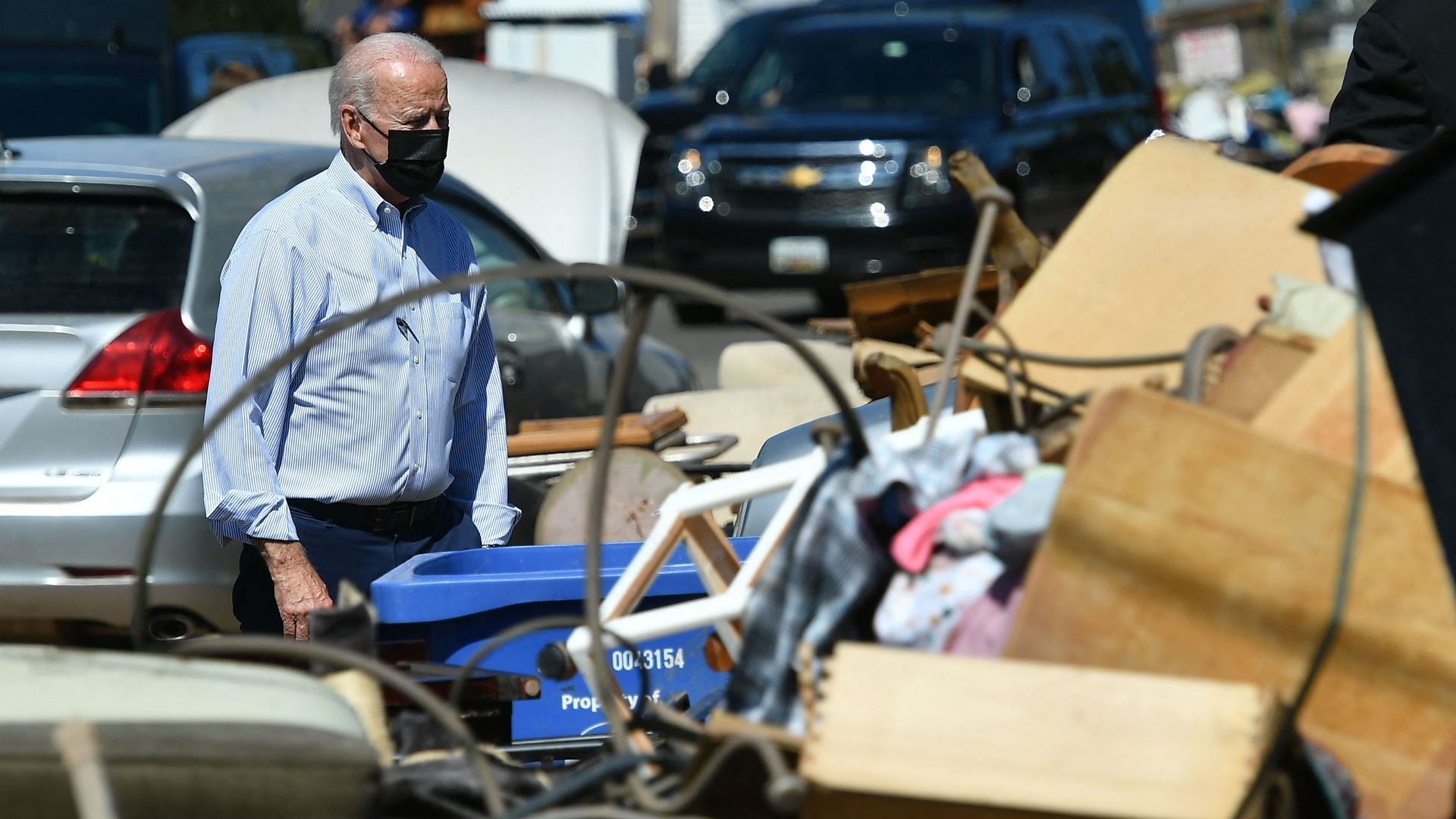Sep 7, 2021 - Energy & Climate
Biden's extreme weather message: code red
Add Axios as your preferred source to
see more of our stories on Google.

President Biden tours a neighborhood today in Manville, New Jersey, that was hit by the remnants of Ida. Photo: Mandel Ngan/AFP via Getty Images
